9 Simple Mistakes That Can Crush Your Credit Score

9 Simple Mistakes That Can Crush Your Credit Score
You don't want to be guilty of these
Your credit score is one of the most important factors in your financial life. A bad credit score can cost you tens of thousands of dollars over the course of a standard 30-year mortgage. It could also be the determining factor on whether or not you get that new job you applied for. And there are dozens of companies that check your credit before doing business with you like wireless phone service and home utilities providers.
Keeping your credit score high can make your whole life a lot easier, so make sure you’re not making these nine simple mistakes that can crush your credit score.
ALSO READ: How Does Your Credit Score Compare With the Average?
Previous
Next

1. Avoiding credit
Many people have become averse to credit since the banking collapse last decade. Millennials, in particular, are signing up for credit cards at a significantly lower rate than their parents.
But avoiding applying for credit now means you won’t have it when you really need it.
While not having a credit card or consumer loan means there’s no chance of spending more than you can afford, it also misses the biggest opportunity to build your credit score. Lenders like to see that you can responsibly handle credit. Without a track record of responsibly using a credit card or dutifully paying off your loans, credit reporting agencies can’t assess your creditworthiness.
You can remedy that problem by applying for a starter credit card. It’s unlikely you’ll get approved for a top rewards credit card without a significant credit history, but you’re just looking to start building credit. Check out The Motley Fool’s top-rated credit cards to find one that fits your needs and credit profile.
Previous
Next
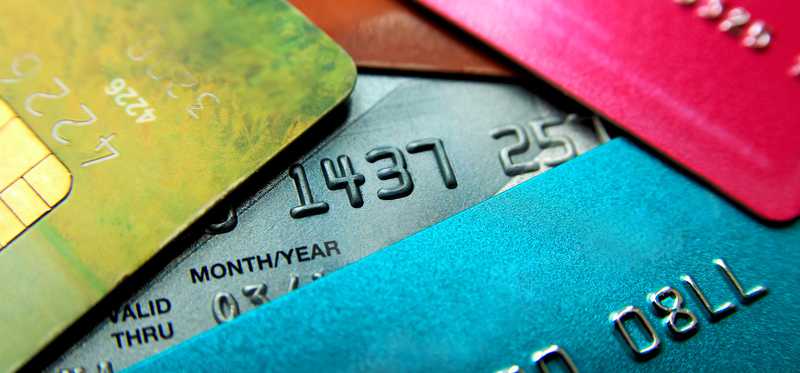
2. Only sticking to credit cards
Maybe you have a credit card or two, and you’re building a great record of handling the balances on those cards responsibly. You may still unknowingly hurt your credit score, if you’re purposely avoiding other consumer loans.
I’m not saying you should apply for loans you don’t need, but if you’re considering a purchase like a new car, you may be better off applying for a low-interest rate loan instead of paying for it with cash. If you invest the difference, you might come out ahead on the interest rate, and you’ll be diversifying your credit mix at the same time.
Credit mix is one of the five factors that impact your credit score, accounting for about 10%. Showing lenders you can handle a variety of different types of credit increases your creditworthiness and, therefore, your credit score. So, next time you’re faced with a decision on whether or not it’s worth it to borrow, consider your current credit mix along with the opportunity costs of taking the loan or not.
Previous
Next
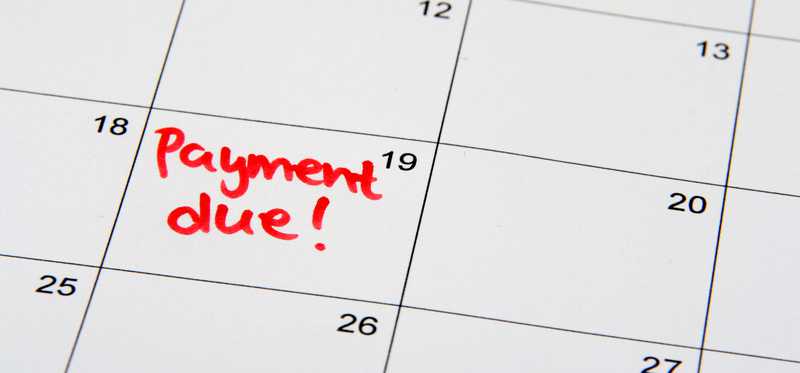
3. Not paying your bills on time
The biggest factor impacting your credit score is how often you pay your bills on time. It accounts for about 35% of your score. You don’t want creditors reporting a late payment to the credit reporting agencies, so don’t ever give them a reason. Even though some credit card companies offer late payment forgiveness, removing the fees associated with not paying your bill on time, that late payment could still show up on your report.
The easiest way to combat late payments is to set up autopay. If you’d rather have more control over your money, set up a system where you go through all your bills on one day of the month and pay them all off.
Previous
Next

4. Maxing out your credit card limits
Just because you have the credit available doesn’t mean you need to use it. In fact, you’ll actually hurt your credit score if you use too much of your credit.
Credit utilization -- the ratio of credit you use versus total available credit -- is one of the biggest factors in your credit score, accounting for about 30%.
Keeping your credit utilization ratio below 20% on each of your credit cards and across your combined credit limit will provide a significant boost to your credit score. Keeping it under 10% will really maximize your credit score. So, if you have a $10,000 credit limit, try to keep your balance under $1,000 or $2,000.
Previous
Next
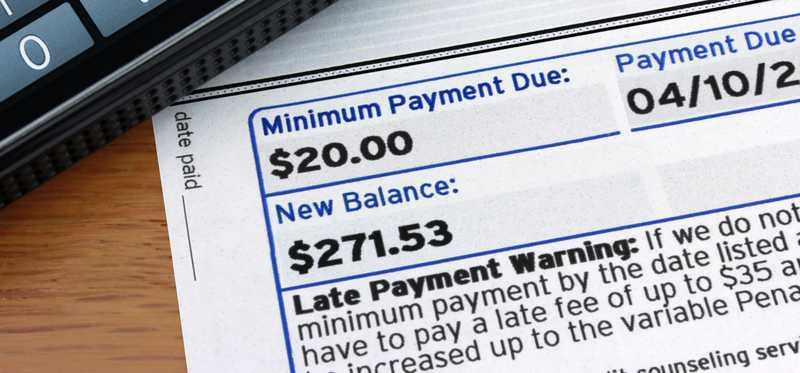
5. Not paying the full balance on your credit cards
One of the most pervasive credit myths is carrying a balance on your credit card helps you build credit. Not only does it not help build credit, it can actually hurt your credit score. Not to mention you’ll rack up unnecessary interest charges.
The best credit utilization ratio your credit card issuer can report to the credit rating agencies is as close to 0% as possible. If you intentionally leave a balance on your credit cards, your credit utilization will remain higher than it needs to be.
The best policy is to always pay your credit card balances in full.
Previous
Next

6. Closing an old account
If you’ve recently gotten a new credit card with better rewards, you may feel compelled to close your old account. Big mistake!
Another factor impacting your credit score is average age of accounts. It accounts for about 15% of your total score. Closing an account allows it to fall off your credit report, although it won’t happen right away.
Additionally, closing an account means saying goodbye to the credit limit on that account. Even if you weren’t using it, that credit limit was improving your credit utilization ratio.
Sometimes a bank will close an account automatically if it doesn’t see any activity on a credit card. You can put a small recurring monthly payment on a card and set up autopay to take care of that problem.
If the credit card has an annual fee, try to change it to a no-annual-fee credit card instead of closing the account. Sometimes, though, it’s not worth paying an annual fee just to keep an account open.
Previous
Next

7. Not paying every bill (even non-credit related bills)
If you’ve gotten a parking ticket or a library fine, be sure you pay it off by the due date. At the very least, make sure it doesn’t get sent to a collections agency. If any bill gets sent to collections, that’ll show up on your credit report, even if it’s not from a lender.
The best way to handle irregular bills like a hospital bill or a traffic ticket is to simply pay them as soon as you receive them, or schedule the payment before it’s due.
If you can’t pay the bill right away, be sure to call the entity that sent it and figure out a way to pay it over time without sending the bill to collections. They might even offer you a discount since they know they wouldn’t get the entire amount from a collections agency. Being proactive can save you some money and save your credit score.
Previous
Next
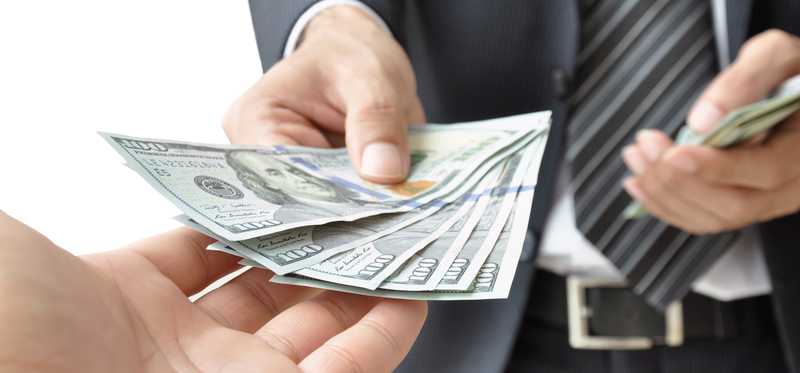
8. Paying off old collections accounts
If you already have some collections accounts on your credit report, you might think it’s best to just pay them off as soon as you can. But that could end up hurting your score.
The older a collections account, the less impact it has on your credit score. But if you pay the bill, it could cause it to become “current” as the collections agency updates its records and reports them to the credit rating agencies. That completely resets the clock on the delinquent account.
Delinquent accounts should fall off your report after seven years, completely removing their negative impact, but that won’t happen if you so much as acknowledge the debt is yours. Instead, send a written request to the collections agency to send proof that you owe the debt and that they’re authorized to collect it. If they can’t, you can dispute it with the credit bureaus and get it removed.
ALSO READ: Half of U.S. Adults Have Not Checked Their Credit Score in 6 Months
Previous
Next
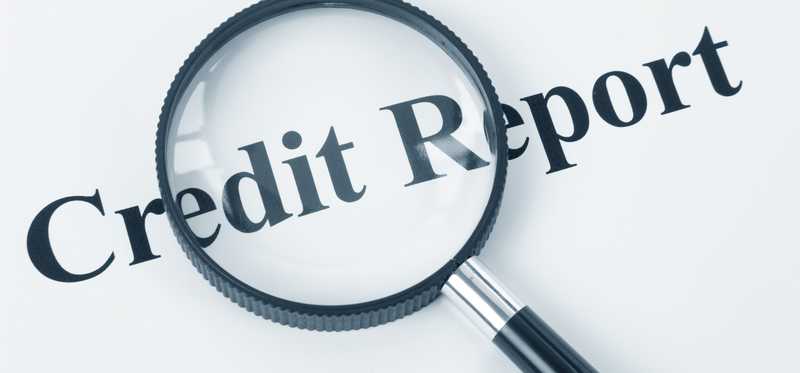
9. Not checking your report for inaccuracies
If you’re not checking your credit report at least once a year for inaccuracies, you’re doing yourself a major disservice. The Federal Trade Commission found that one in four consumers have an error on their credit reports that might affect their credit scores. What’s more, 5% have an error so big that could lead to them paying higher interest rates.
Checking your credit report from all three bureaus is completely free at www.annualcreditreport.com. If you see debt on the report that isn’t yours, be sure to contact the bureau and dispute it. Likewise, if your credit limits are incorrect, dispute those as well.
Filing a dispute isn’t hard; you can often file a report online. If your dispute is more complicated, check out this guide on how to file a dispute with the credit bureaus.
Previous
Next
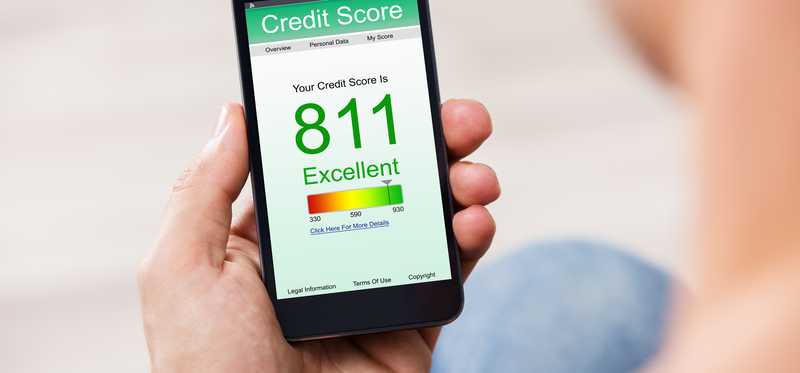
Keep your credit score above average
If you don’t pay attention, it can be easy to make any of these mistakes and crush your credit score. But keep in mind you ultimately have control over your credit, and you can take steps to improve it no matter how bad or how good your score is right now.
Avoiding these simple mistakes is the easiest way to keep your credit score above average, and keep you from paying extra over the life of a loan or, worse, getting passed over for a new job.
The Motley Fool has a disclosure policy.
Previous
Next
Invest Smarter with The Motley Fool
Join Over Half a Million Premium Members Receiving…
- New Stock Picks Each Month
- Detailed Analysis of Companies
- Model Portfolios
- Live Streaming During Market Hours
- And Much More
READ MORE
HOW THE MOTLEY FOOL CAN HELP YOU
-
Premium Investing Guidance
Market beating stocks from our award-winning service
-
The Daily Upside Newsletter
Investment news and high-quality insights delivered straight to your inbox
-
Get Started Investing
You can do it. Successful investing in just a few steps
-
Win at Retirement
Secrets and strategies for the post-work life you want.
-
Find a Broker
Find the right brokerage account for you.
-
Listen to our Podcasts
Hear our experts take on stocks, the market, and how to invest.
Premium Investing Services
Invest better with The Motley Fool. Get stock recommendations, portfolio guidance, and more from The Motley Fool's premium services.